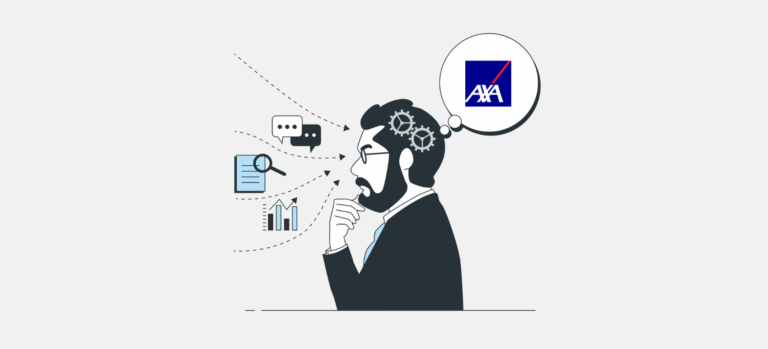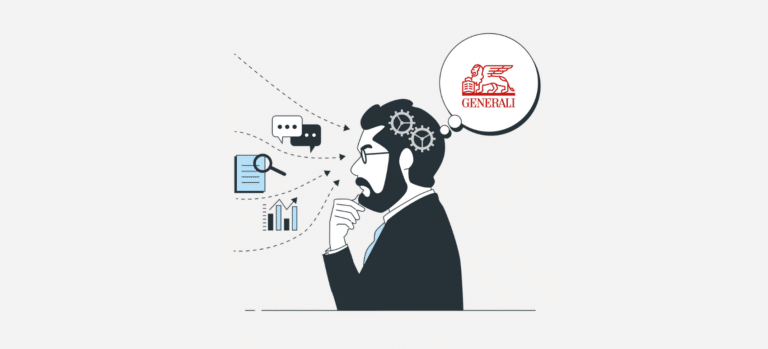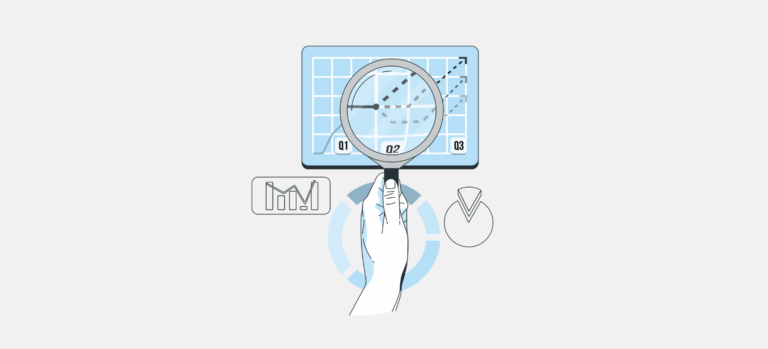Loss of Earnings Insurance
Loss of earnings insurance to secure your income
The loss of income insurance, also commonly called disability income insurance, guarantees the payment of an income if you are temporarily or permanently unable to work due to illness or accident.
Without this protection, just a few weeks off work can put your financial stability at risk. This insurance is essential to maintain your standard of living and ensure the continuity of your income, complementing the benefits of the 1st and 2nd pillar.
Your bills, rent, and expenses continue even when your salary stops. The loss of income insurance takes over and pays you a daily allowance during your period of incapacity. This allows you to maintain your regular expenses without dipping into your savings, while protecting your family and your financial goals.
It's a simple, effective solution for coping with the unexpected without compromising your economic security.
The amount of coverage, the duration of compensation, and the waiting period must all be tailored to your personal situation.
We analyze your income, your professional status and your other insurance policies to build a tailor-made protection package. As a result, you benefit from optimized loss-of-earnings insurance that's both comprehensive and fairly priced.
Disability insurance (AI) and the LAA (accidents) or LPP (illness) only cover a limited portion of your income.
Private loss-of-earnings insurance fills these gaps and guarantees comprehensive financial protection. In the event of a prolonged work stoppage, you'll retain a regular income, peace of mind and the ability to concentrate on what's most important: your health.

Why take out disability insurance?
Discover 4 good reasons to take out loss of earnings insurance in Switzerland.
Guaranteeing long-term income
In the event of partial or total disability, IG insurance pays you a regular pension, which supplements benefits from the IV and 2nd pillar.
Covering the gaps
IV and BVG/LVG pensions often only compensate for a portion of previous income. GI insurance is the only way to guarantee a tailor-made top-up.
Preserving your standard of living
Prolonged inability to work can jeopardize your standard of living. GI insurance allows you to maintain an income, even in the event of recognized disability.
Protecting your family
By preserving your previous standard of living, you provide your family with financial security in the event that you can no longer work.
Frequently asked questions about health insurance
Here are the answers to the most frequently asked questions about health insurance in Switzerland.
loss of earnings is a private coverage that pays a pension if you become permanently unable to work due to illness or accident. It supplements benefits from the IV and 2nd pillar, which are often insufficient to maintain your standard of living.
In the event of a loss of earning capacity due to illness, you can generally expect to receive around 60% (combined AVS and LPP) of your previous salary.
In the event of a loss of earning capacity due to an accident, the benefits are higher. You may receive up to 90% of your previous income.
No, it is optional. However, it is highly recommended for self-employed individuals, business owners, and employees with a high income, as the AI and LPP pensions are capped and may leave a significant gap in coverage.
Self-employed individuals are not affiliated with a pension fund (unless they join one voluntarily). They therefore do not benefit from LPP or LAA coverage in the event of a loss of earnings due to illness or accident. A self-employed person would only receive benefits from the DI, which are very low (maximum AVS pension in 2025: CHF 2,520 per month).
An incapacity insurance policy can therefore protect you against a major loss of earnings.
Yes, the loss of earnings insurance (IG) complements the DI and LPP/BVG pensions. The goal is to guarantee you a total income equivalent to around 90% (or more) of your previous salary, in coordination with the other benefits.
Invexa is a 100% independent financial planning firm. We identify the best offers on the market and guide you in choosing a plan that fits your profile, your needs, and your budget.
All the loss of earnings insurance are not the same. Offers differ according to compensation rate, the duration of coveragethe waiting time and, of course, the price. To choose the best solution, you need to look beyond the monthly premium and understand the actual compensation conditions.
1. Compensation rate and duration
Some loss-of-earnings insurances cover 80 % of salary, others 90 % or 100 %. Compensation can last from a few months to two years, or even until disability is recognized. The longer the coverage, the higher the premium - and the more secure your income. but also the more secure your income.
2. The waiting period
The waiting time corresponds to the number of days between the disability and the payment of benefits. A short period (e.g. 14 days) costs more but protects faster. A longer delay (30, 60 or 90 days) reduces the premium, but leaves a temporary gap to fill.
3. Exclusions and conditions
Each contract contains exclusion clauses : pre-existing illnesses, psychological conditions, relapses, etc. It's essential to examine them carefully. Cheap loss-of-earnings insurance may conceal restrictive restrictive conditions that limit your rights in the event of a claim.
4. Stability and reputation of the insurer
The financial strength of the insurer and the quality of its customer service are crucial. In the event of incapacity, you need a responsive and reliable partner. It's better to have slightly more expensive but effective loss-of-earnings insurance at the critical moment, than a "low-cost" offer that is slow to pay benefits.
5. Adapting to your status
A independent doesn't have the same needs as a employee. Amounts, terms and coverage must be tailored to your business according to your activity, income and other insurances. A professional analysis will help you choose the right truly tailored loss of earnings insurance to your situation.
Why choose Invexa?
Invexa will work with you rigorously, ethically and objectively to optimize your retirement and personal finances, without any conflict of interest.
Independent advice
Invexa is not affiliated with any bank or insurance company. We are on your side, defending your interests to the best of our ability.
Results-oriented approach
We'll help you make concrete, realistic decisions that are consistent with your tax, business and family situation.
Expert advice
Our advisors are specialists in their field and hold qualifications recognized in Switzerland.
All-round Support
Our team is at your disposal to advise and support you at all times, for simple or complex situations.
How does disability insurance work?
Disability insurance (DI) protects you if an illness or accident renders you permanently unable to work. It supplements benefits from the IV and 2nd pillar, which are often insufficient to maintain your standard of living. Here's what you need to understand about how it works.
When are benefits paid?
The benefit is not paid from the first day of work stoppage, but only after a selected waiting period chosen when taking out the policy. The waiting periods range from 90 to 720 days. The longer the waiting period, the lower the premium — but the more you must cover your own income during that time. A self-employed person without daily allowance coverage will benefit from choosing a shorter waiting period, while an employee already covered by a group policy can opt for a longer deductible.
For example, you choose a waiting period of 365 days. If an illness prevents you from working, you will only receive your pension after a full year of recognized incapacity, bearing in mind that a waiting period also exists for IV and BVG pensions.
How much is the annuity paid?
Once the waiting period has passed, the degree of loss of earning capacity is assessed. This rate determines the amount of the benefit paid. In general, no payment is made if the incapacity is below 40%. Between 40% and 69%, you receive a partial benefit proportional to your loss of working capacity. From 70% onwards, the full benefit is paid based on the amount defined in the policy.
Pillar 3a or 3b: how is it taxed?
Loss of earnings insurance can be included in a pillar 3a or pillar 3b plan. Under the 3a framework, premiums are tax-deductible, but the contract is subject to strict rules, and you cannot contribute more than the authorized maximum amount (CHF 7,258 for 2025). Under 3b, there is no tax ceiling or retirement-related restriction, but the premiums are not tax-deductible (except in certain cantons).
The choice depends on your available tax deduction capacity, your professional status, and your overall financial strategy. A self-employed person will often optimize their pillar 3a to reduce their annual tax burden, since the deductible amount is higher (CHF 36,288 for 2025), while a high-income earner may prefer the flexibility of pillar 3b.
Can the contract be adapted after subscription?
Some contracts provide for flexible adaptation in the event of change personal situation: marriage, birth, property purchase or professional development. It is then possible toincrease the insured pension up to a certain threshold - often 25 % or CHF 18,000 without having to undergo a full medical examination. What's more, some insurers allow a review every five years, which is useful if your income rises or your lifestyle changes.
Get advice
Make a free appointment with one of our pension experts for personalized advice.





